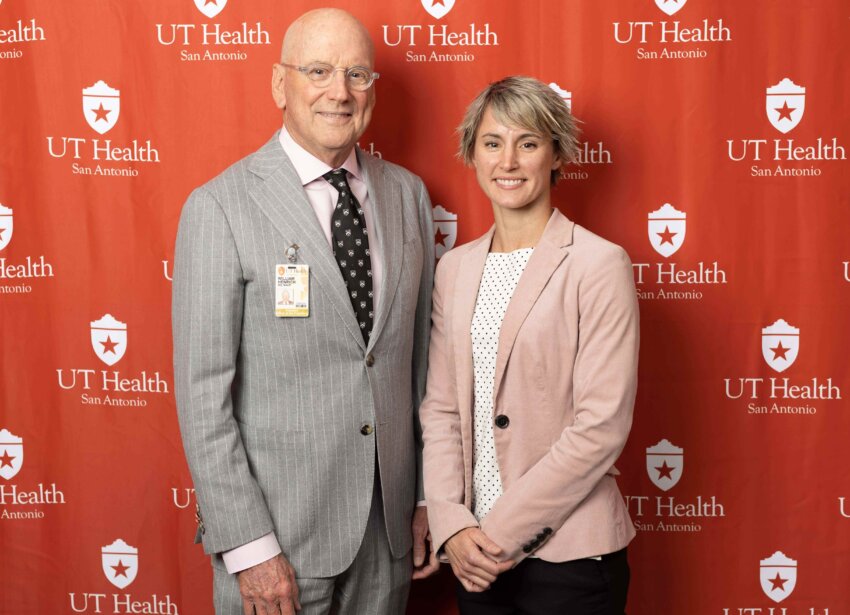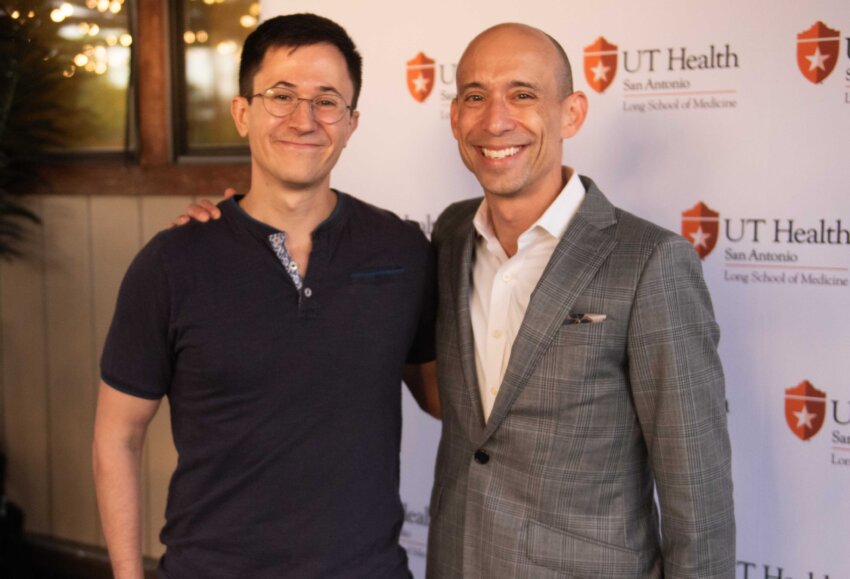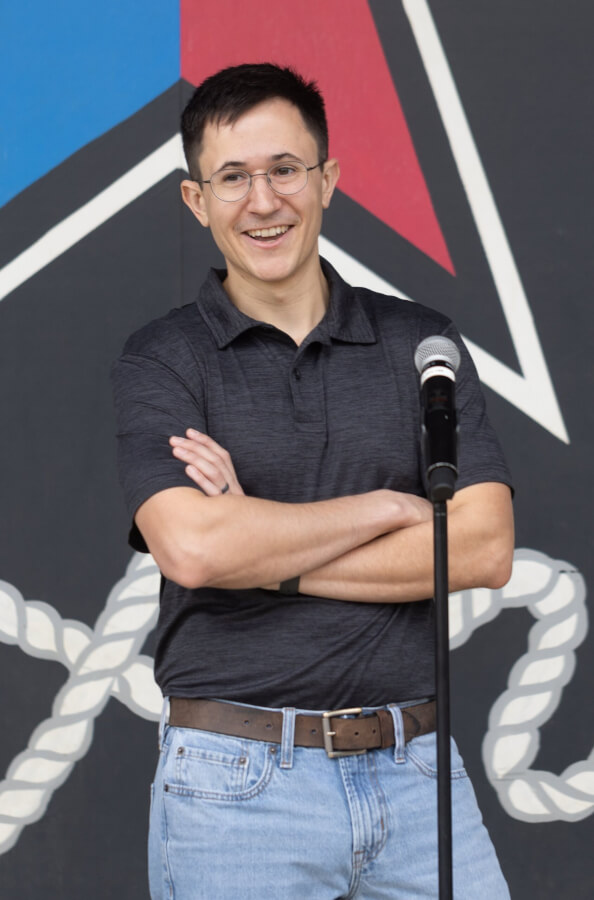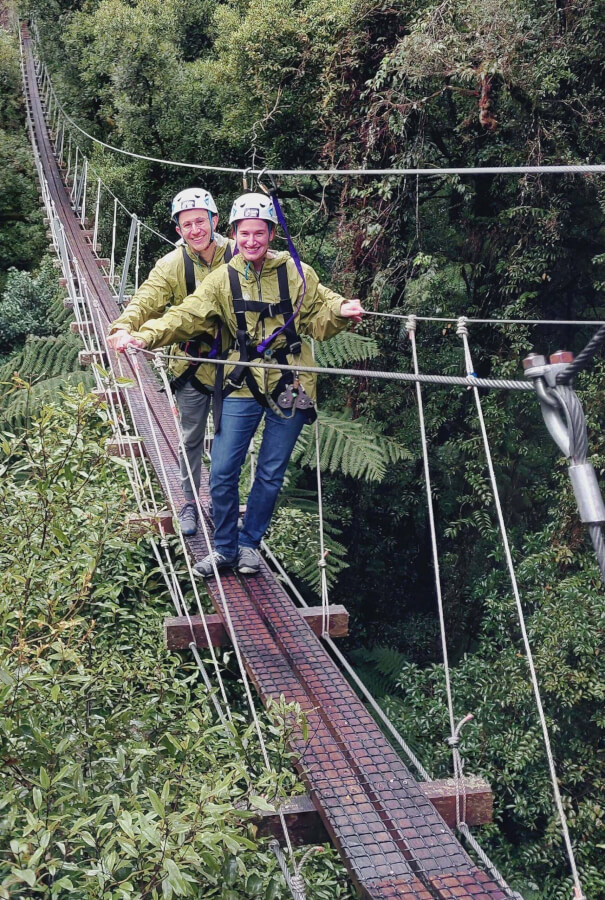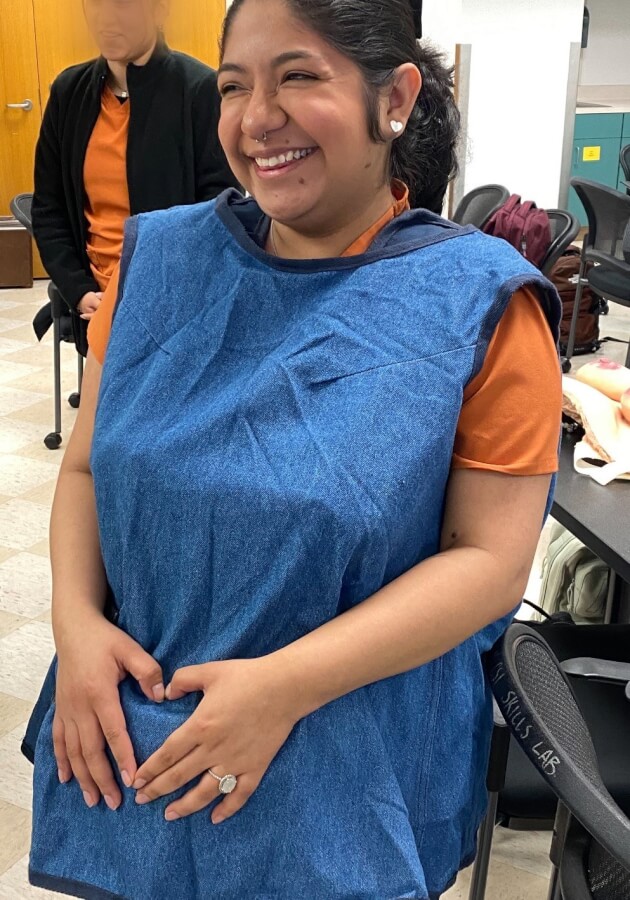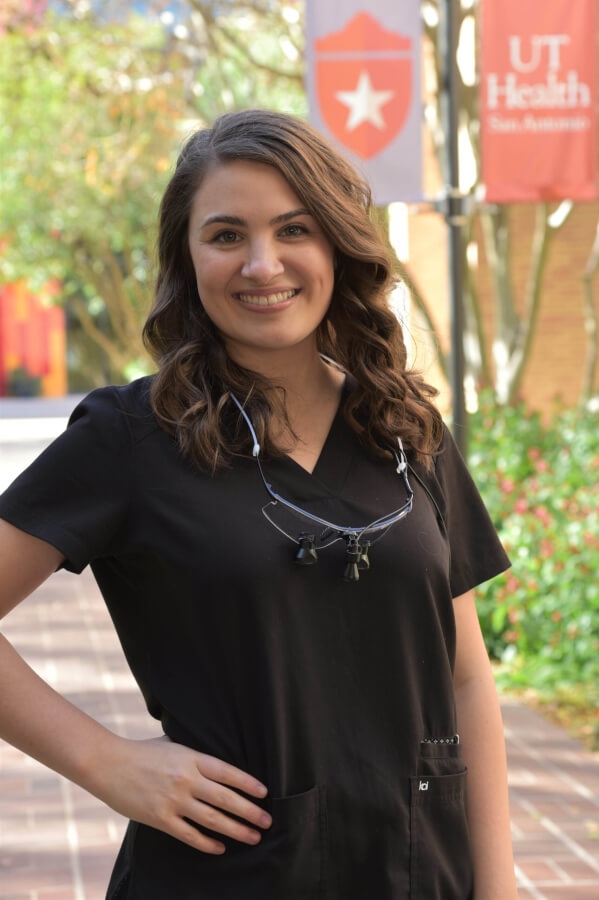Speech-language therapy wasn’t Gina Baxter’s first career choice, but it is the one she believes will fulfill her desire to help people maintain their closest relationships.
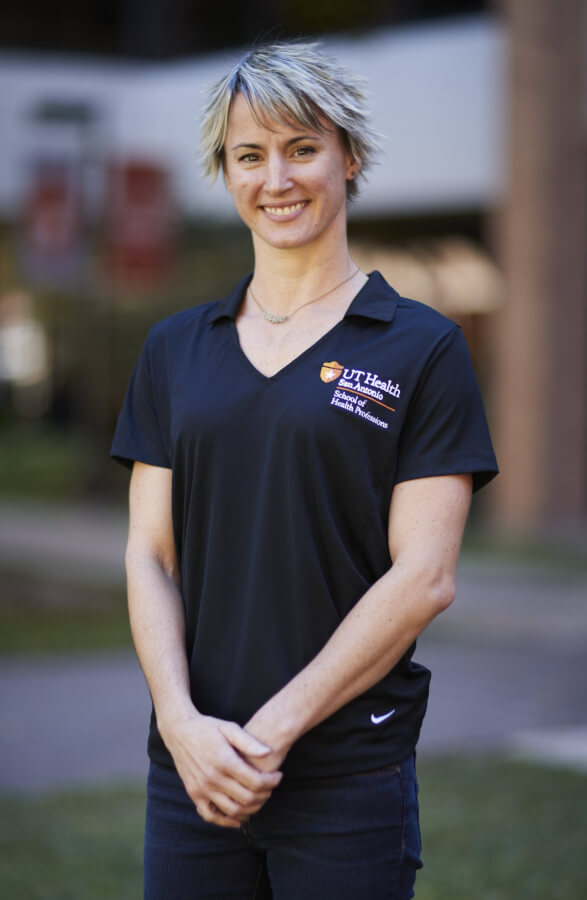
“To me, that’s the most important thing in our lives — the connections with the people we love,” said Baxter, who is president of the Master of Science in Speech-Language Pathology Class of 2024 and was a 2023 Presidential Ambassador Scholar.
Baxter spent her early career as a wildlife biologist. She worked as an animal trainer at a private zoo with bobcats, lynx, birds of prey and squirrel monkeys, and with dolphins, and seals and sea lions at aquariums. She made her first career pivot into business when she took over her parents’ property management company operations. She soon started her own property management company and built up a sizeable vacation rental portfolio along the Frio River in the Texas Hill Country.
After having her two children, Baxter was ready to go back to school. She began researching careers.
“I thought back to all my experience, and one thing I loved was people — getting to know them and helping them,” she said. Speech-language pathology, with its neurological and cognitive aspects and broad range of settings and patient populations, captured her interest.
“The difficulty and the complexity attracted me to this field along with the opportunity to make a difference in [patients’] daily lives,” she said.

Baxter had heard that the School of Health Professions’ speech-language pathology program was rigorous, which was exactly what she wanted.
“I wanted the extra work and the extra information,” she said. “[The faculty’s] mentorship and their background and experiences are so diverse, it gives you a really broad range of information. They are so willing to share that will you. It makes our knowledge base so much bigger.”
Baxter hopes to work with people with aphasia, traumatic brain injury, Parkinson’s disease or other neurological conditions that affect their ability to communicate.
“It’s getting those cases and figuring out the person and then choosing the appropriate treatment that specifically targets their deficits,” she said.
With the conclusion of graduate school, Baxter hopes to find time to restart her practice of martial arts, which she began the year before she won the gold medal in the blue belt, light-feather weight division of the 2022 Masters World Jiujitsu Championship.
“I do still practice jiujitsu and help coach my kid’s class,” she said, explaining that she hasn’t competed for a while because of time limitations. “I have always been interested in martial arts but never had the time, and I finally just made time for it.”


